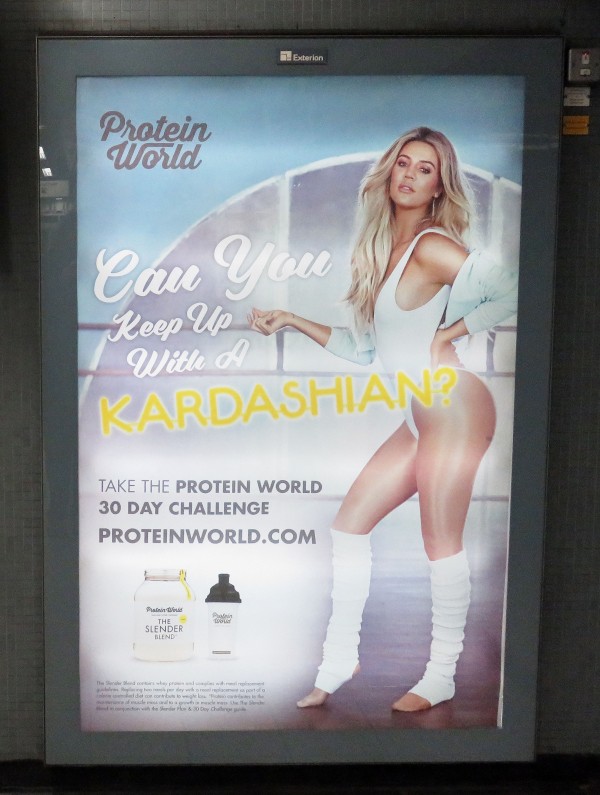
An ad featuring Khloe Kardashian for Protein World, best known for its controversial “beach body ready” campaign, has been cleared following complaints it was socially irresponsible.
London Underground commuters saw the poster of Khloe wearing a leotard and leg warmers alongside the text: “Can you keep up with a Kardashian? Take The Protein World 30 Day Challenge”.
The ad attracted 14 complaints that it promoted an unhealthy and competitive approach to dieting, and was therefore socially irresponsible.

Protein World told the Advertising Standards Authority (ASA) the overall response to the ad was that it was motivating and empowering, and they did not believe it was socially irresponsible.
The company also understood that Transport for London was satisfied the ad complied with its own regulations.
Clearing the ad, the ASA said: “We considered that the ads promoted Khloe Kardashian’s body image as desirable and aspirational; this was supported by her pose and the airbrushed style.
“However, we did not consider that she appeared to be out of proportion or unhealthy.”

It said people would understand the phrase “Can you keep up with a Kardashian?” to reference both the TV series Keeping up with the Kardashians, which Khloe appeared in, and the use of Protein World’s products to achieve a desirable body image.
The ASA added: “We acknowledged that the use of the terms ‘Can you keep up with … ‘ and ‘challenge’ could be interpreted as having a competitive quality, but we did not consider that the terms or the ads overall encouraged excessive weight loss or other extreme or potentially harmful dieting behaviour.
“We therefore concluded the ads were not socially irresponsible.”

Protein World’s 2015 campaign asking people if they were “beach body ready” drew 380 complaints from commuters, who also took to social media and scrawled over the posters in protest.
The ASA ultimately ruled the ad could not appear again in its current form due to problems with its health and weight loss claims but concluded it was “unlikely to cause serious or widespread offence”.


Comments: Our rules
We want our comments to be a lively and valuable part of our community - a place where readers can debate and engage with the most important local issues. The ability to comment on our stories is a privilege, not a right, however, and that privilege may be withdrawn if it is abused or misused.
Please report any comments that break our rules.
Read the rules here